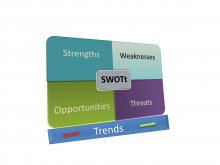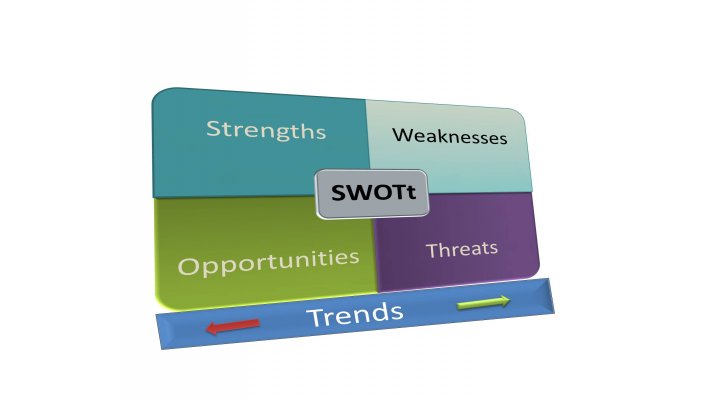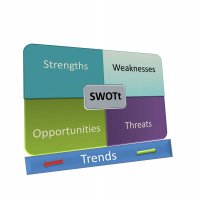By accessing this specific research or running a study on a job you are hiring for, to fine tune the specifications, the level of understanding is increased greatly. The end result is a single number, based on research that constitutes a probability of success in that job (success = high performance). Selection decisions can be made MUCH more accurately. Just in the last couple years, leading companies such as MasterCard, Travelers, Qualcomm and hundreds of others have begun adopting this approach to select their people.  Just as important, as nobody is perfect, is that it shows where the person's strengths are and where the weaknesses are. This provides a powerful tool for the person and their manager to work on what is most likely to increase performance on the job. This allows them to focus more on using their strengths to the benefit of the company and to focus on developing skills and awareness in areas where they may be relatively weak. Click on the image above for a summary discussion on JSF's.
Just as important, as nobody is perfect, is that it shows where the person's strengths are and where the weaknesses are. This provides a powerful tool for the person and their manager to work on what is most likely to increase performance on the job. This allows them to focus more on using their strengths to the benefit of the company and to focus on developing skills and awareness in areas where they may be relatively weak. Click on the image above for a summary discussion on JSF's.


With the proliferation of ERP, BI, BPM, Data Analytics and other business systems, the key selling point is the concept of having a dashboard such that everything you need to drive your business is in front of you. Just read the "gauges" and step on the brake or accelerator… It's a miracle of modern management, a simple, "powerful" , prioritizing, management by exception system that does what we need to have done. Or is it?
Let's consider a few key points.
Simple is not a bad thing, too simple is

... and what is your level of understanding of the key performance factors?
Developing the focus for your organization and then using that focus to achieve key goals with all your people and processes is never easy but it is essential for success. Often this work is ignored, the need rationalized away or large planning exercise satisfies the need and then little attention is given to implementation. An effective focus involves is the result of an accurate assessment of the situation. This means having an effective assessment process that results in an accurate understanding of the following:

The objective of a planning process, in marketing or elsewhere, is typically to pick the most worthwhile goals and figure out how to get there in the most efficient way possible. Usually, the most significant barrier to effective planning for many is oversimplification and basing decisions on assumptions and "feel-good" information that has no or little relation to reality. This leads to really bad decisions and I believe is a primary reason that statistically, most businesses and plans fail. An effective planning process needs to be based on inter-relating significant amounts of accurate, timely and appropriate information together from within (company competencies, culture...) to the main outside focus(the customer) to the key influences from the external environments.

By focusing on what you are trying to accomplish in the long term to develop a vision you can share, key goals and key strategies for achieve those goals, you will see the following benefits:




























